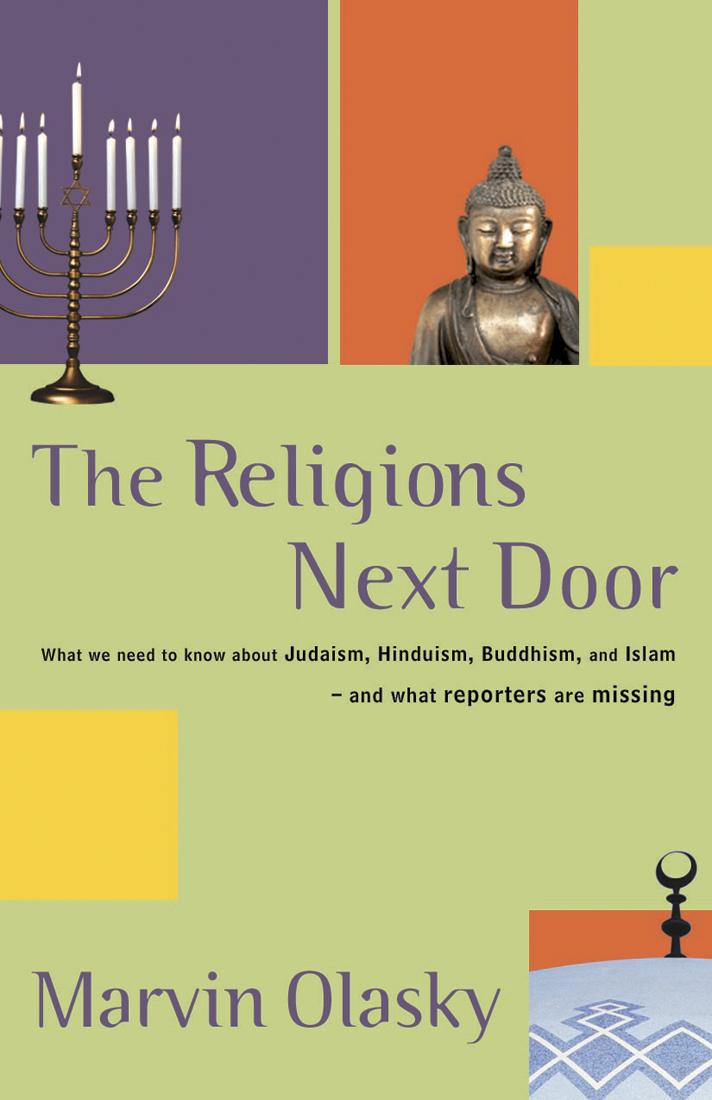
NASHVILLE, Tenn. (BP)—-In teaching a journalism and religion course at the University of Texas at Austin, Professor Marvin Olasky noticed an alarming trend when it came to studying comparative religion: he couldn’t find a book that accurately and reliably studied Judaism, Hinduism, Buddhism and Islam.
So he decided to write one himself: “The Religions Next Door: What we need to know about Judaism, Hinduism, Buddhism, and Islam — and what reporters are missing,” published by the Broadman & Holman division of LifeWay Christian Resources.
Written for journalists, students and general readers alike, the book takes an in-depth look at the foundational beliefs of four major religions and presents Olasky’s own encounters and evaluations of them. The journalism professor’s perceptions are unique in that he has experienced the appeal and specifics of three very different religions.
“My experience in Judaism, atheism and Christianity means I have some sense of how people consciously change religions,” said Olasky, who has been teaching at the University of Texas more than 20 years. “Learning about religion as an adult is something I have personal experience in.”
Olasky grew up in a Jewish household, became an atheist and member of the communist party as a young adult, and then embraced Christianity after a quiet three-year process that included study of a Russian New Testament and old Puritan sermons.
His life experience helped in writing his latest book, but more importantly, he said he was able to write such a book because he takes the topic seriously, an outlook he tries to instill in his students — and one he fears many religion reporters do not possess.
“Most journalists tend to be highly secularized, so this is not something that is hugely important in their lives — or at least they think it isn’t,” Olasky said. “It’s not a beat that has a lot of esteem at most papers.”
The final two chapters of The Religions Next Door confront how journalists miss the fundamental elements of religion reporting because they fail to recognize the impact religion has on everyday life. Instead, religion reporters are content to syncretize, or merge the beliefs, of extremely different religions.
Olasky, who also serves as the editor in chief of World magazine, said journalists have needed a book such as this, even though the work is primarily a religion book compiled through years of research and packets of information he produced for his students each semester.
Religion is vital to the way people structure their lives and cultures, Olasky said. Unfortunately, he noted, journalists tend to write two types of religion stories: cheery public relations features or judgmental examinations based upon a politically correct viewpoint.
“The truly rare stories are ‘type three,’ going beyond happy talk or conventional analysis to a depiction of how the downsides of some religions may be imbedded in their positives,” Olasky wrote in the final chapter of The Religions Next Door.
The author believes religion reporting should be conducted similar to political reporting.
“I would like to see media cover religion the way it actually is — a topic people debate.”
But to accomplish such a feat, he said, would require intelligent journalists with thick skin and their own beliefs, as well as editors willing to print controversial stories.
As the editor of the country’s fourth most-widely read newsweekly, Olasky said he keeps his opinions out of his articles to let God’s views shine through, and his study of other religions makes that task easier.
“The Bible is unique among all the Scriptures I’ve read,” he said. “The more you learn the more godly Christianity becomes.”
In the classroom, Olasky said he strives to give his students a jumpstart into the world of religion reporting with a few weeks devoted to studying each of several religions. He admitted that many of the topics he teaches could fill an entire semester of instruction, but he teaches even a concise version because he believes the topic is important.
“It is neither wise nor compassionate to remain uninformed … when one culture may be threatening another, to settle for the most superficial coverage of that culture’s belief, or to assume that both cultures have essentially the same understanding of who God is,” he warned in the book’s closing.
–30–
“The Religions Next Door” can be purchased at LifeWay Christian Stores and online at lifewaystores.com.
















